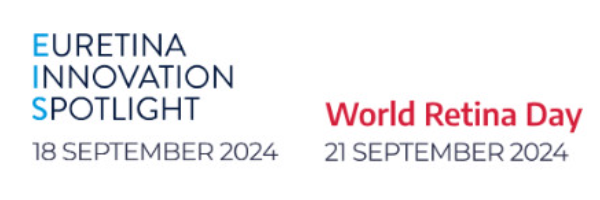The Artificial Intelligence for Practice session at EURETINA 2024 focused on how AI is being integrated into ophthalmology, covering a range of themes from retinal imaging and disease prediction to surgical applications and broader systemic health analysis through ocular data. Throughout the session, speakers discussed both the transformative potential and the challenges AI presents in clinical practice.
AI’s capacity to analyse large volumes of data efficiently was a key theme, particularly in retinal imaging. AI-driven tools can significantly improve early detection, screening, and disease monitoring by automating image analysis and offering predictive insights. As Mathias Gallardo noted, It’s fast, non-invasive, and generates vast quantities of data, making it an ideal candidate for AI applications.
The session emphasised AI’s role in enabling personalised treatment plans. By integrating genetic data, retinal imaging, and patient histories, AI helps predict disease progression and tailor interventions, particularly for complex conditions like inherited retinal diseases. This allows clinicians to make more informed decisions and create customised treatment strategies that better suit individual patients.
While the benefits of AI are clear, the session also addressed the significant hurdles in bringing AI into mainstream ophthalmic practice. Clara Sanchez highlighted the need for standardisation, stating, “A major challenge is the lack of standardized guidelines. We need clinical trust in AI systems, and that means establishing clear guidelines similar to those we have for medications and therapies.“ She also emphasised the need for collaboration between developers, clinicians, and regulators to ensure AI tools are safe, effective, and reliable.
AI’s use in surgery was another major point of discussion. AI can assist surgeons with real-time analysis, offering feedback and helping to improve precision during complex procedures. This is part of AI’s broader impact on not only improving surgical outcomes but also elevating the skills of medical professionals.
AI’s potential to use retinal data to assess systemic health conditions, such as cardiovascular diseases and diabetes, was another promising application discussed. Siegfried Wagner explored how the eye’s vascular system can provide insights into broader health issues, with AI making it possible to detect these conditions earlier than traditional methods.
The session reinforced that while AI offers exciting opportunities to enhance clinical practice, its integration requires careful consideration of both technical challenges and ethical concerns. Speakers agreed that AI should augment, not replace, human expertise, with AI tools serving as assistants to clinicians to improve patient outcomes.
Registered attendees can watch the session On Demand.
























































































































